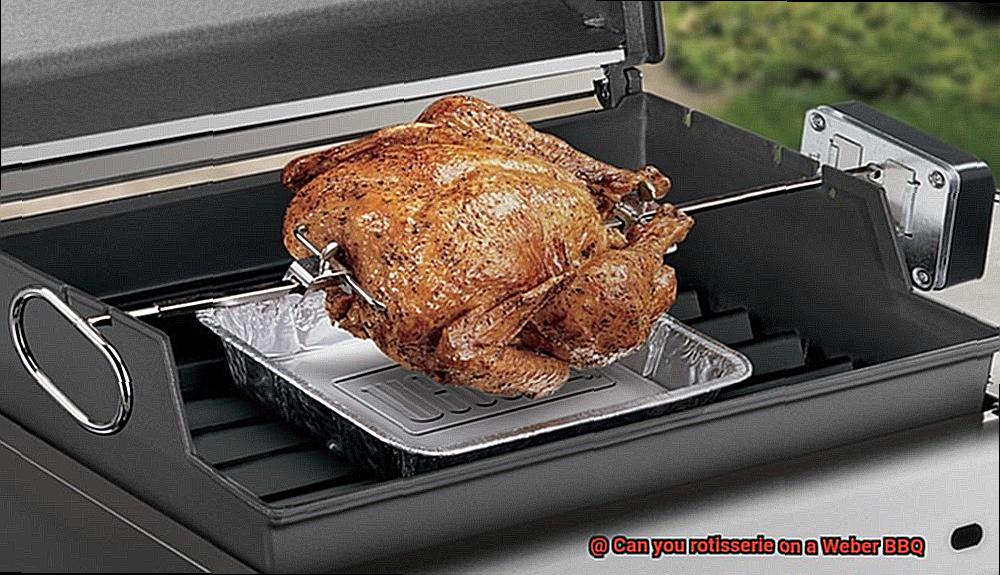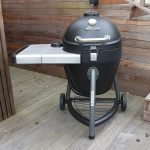Imagine this: you’re surrounded by nature’s beauty, enjoying a camping trip with your family and friends. You’ve got the perfect cut of meat marinating, ready to smoke on your pellet grill. But oh no. You forgot to bring a power source for your grill. Panic sets in as you realize that without electricity, your beloved brisket may never see the light of day.
But don’t fret just yet because we have some good news for you. Did you know that it’s possible to run a pellet grill on a battery? That’s right.
Before you start investing in batteries for your grill, it’s important to understand how pellet grills work and what kind of battery is suitable for powering them up. That’s where we come in. This blog post will provide an in-depth discussion of everything you need to know about running a pellet grill on a battery.
From tips to consider before using a battery for your pellet grill, to various types of batteries available for powering grills, and even how to maintain battery power to ensure maximum functionality – we’ve got you covered. So whether you’re tailgating, camping or hosting a backyard BBQ party, keep reading to learn how you can still enjoy delicious smoked meats with the convenience of a battery-powered pellet grill.
Contents
What is a Pellet Grill?
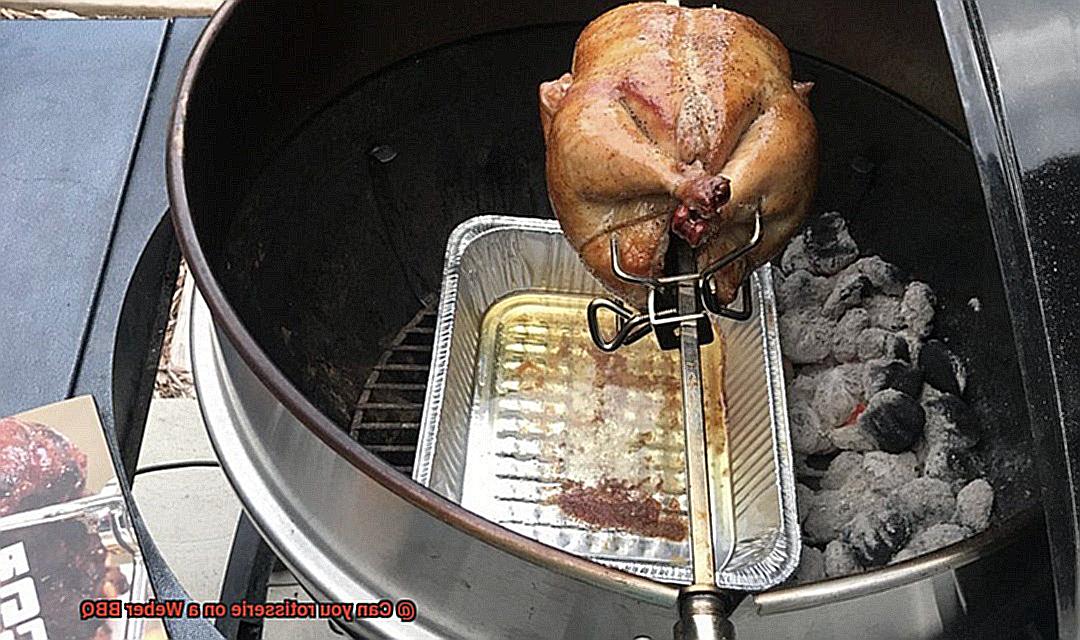
A pellet grill, also known as a pellet smoker or wood pellet grill, uses compressed sawdust and wood shavings mixed with binding agents to create small, cylindrical pellets. These pellets are then stored in a hopper and delivered to a fire pot by an auger. The fire pot ignites the pellets, producing heat and smoke that cook your food to perfection.
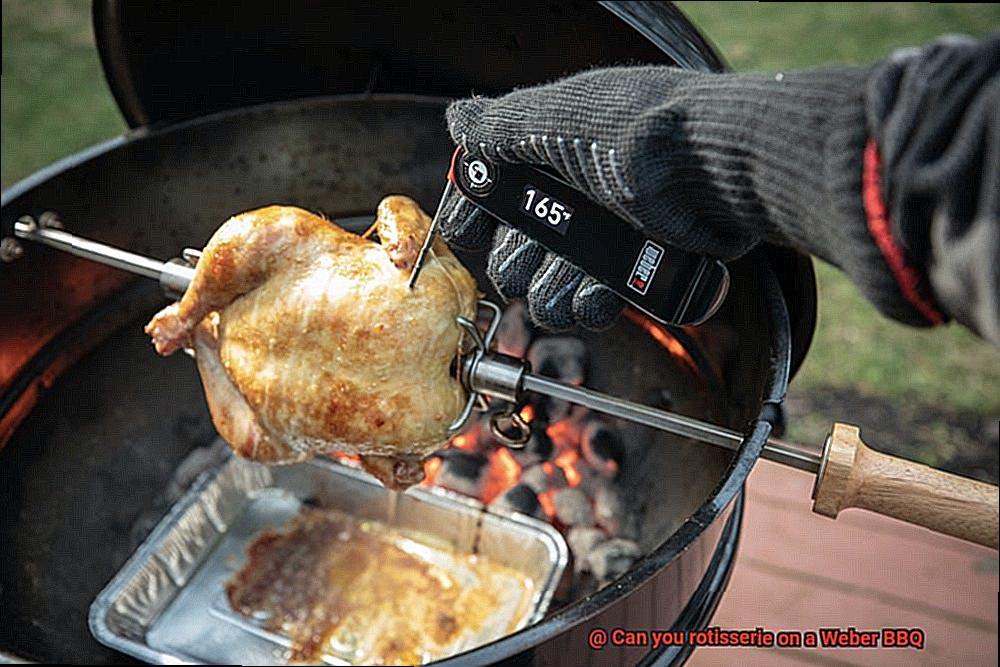
One of the main advantages of using a pellet grill is its versatility. Pellet grills can be used for grilling, smoking, roasting, and baking a wide variety of foods, including meats, vegetables, and even desserts. Plus, they’re known for their convenience, requiring minimal supervision and producing less ash than traditional charcoal or gas grills.
But what about running a pellet grill on a battery? While it is possible, there are important considerations to keep in mind. First, choose a deep cycle marine battery that can provide steady power over an extended period of time. Ensure the battery has enough capacity to power the grill for your desired amount of time and output enough power to meet the pellet grill’s requirements.
Safety is also crucial when running a pellet grill on a battery. The high temperatures generated by the grill can pose a fire risk if the battery isn’t properly protected and ventilated. Always house the battery in a fireproof container and ensure adequate ventilation to prevent overheating.

Can You Run a Pellet Grill on a Battery?
Can you run it on a battery? The answer is yes, but it requires more than just plugging it in and turning it on.
First and foremost, you need to understand the power requirements of your pellet grill. These grills typically use between 300 and 500 watts of power to operate the auger and fan that feed the pellets and circulate the heat and smoke. This means you need a battery that can supply enough power to meet these requirements for an extended period.
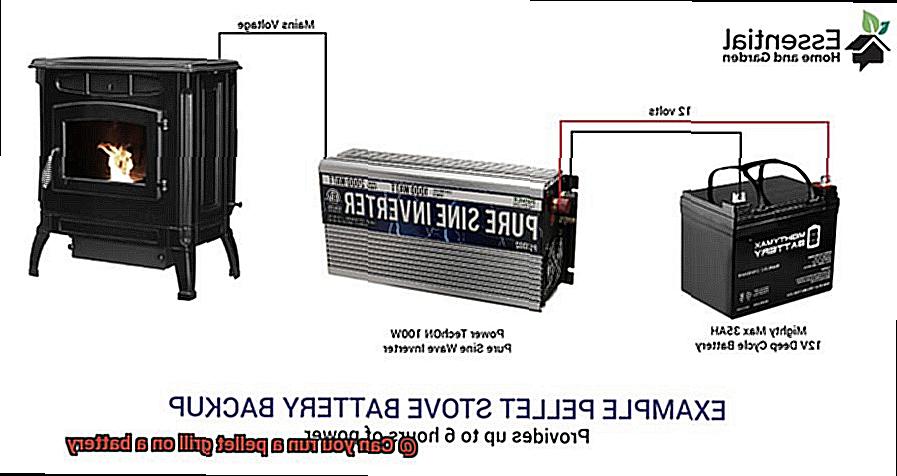
One option is to use a deep-cycle marine battery, which is designed to provide long-lasting power for boats and other applications where there is no access to shore power. These batteries have a high amp-hour rating, which means they can supply a steady stream of power over a long period.
But even with a deep-cycle battery, you may still need to recharge it frequently if you plan on using your pellet grill for extended periods. This means you’ll need access to a reliable power source or carry multiple batteries with you. Don’t let this discourage you, though – with the right setup, running your pellet grill on battery power is doable.
Another important consideration when running a pellet grill on a battery is choosing the right inverter. An inverter converts the DC power from the battery into AC power that can be used by your pellet grill. You’ll need an inverter that can handle the wattage requirements of your pellet grill, as well as any other appliances or devices you may want to run simultaneously.
In summary, running a pellet grill on a battery requires careful consideration of your power requirements and equipment. With the right battery and inverter setup, though, you can enjoy perfectly grilled food even when you’re off the grid. So, don’t hesitate to take your pellet grill on your next adventure – happy grilling.
Choosing the Right Type of Battery
That’s where a battery-powered pellet grill comes in handy. However, choosing the right type of battery for your pellet grill is crucial to ensure it runs efficiently and lasts as long as you need it.
Firstly, the battery you choose must provide enough power to run your grill for the desired amount of time. If you plan to use your grill for several hours at a time, you’ll need a battery with a high capacity that can provide sustained power. A deep cycle battery is an excellent option for this purpose, as it’s designed to provide continuous power over an extended period of time.
When selecting a deep cycle battery, consider its size and capacity. Deep cycle batteries come in various sizes and capacities, so it’s vital to match the battery’s power output to the wattage of your specific grill to ensure that it has enough juice to run smoothly.
Another option is a lithium-ion battery known for its high energy density and long cycle life. These batteries are lightweight, compact, and easy to transport and store. Additionally, lithium-ion batteries can withstand extreme temperatures, making them ideal for outdoor grilling situations.
In addition to choosing the right type of battery, proper maintenance and charging are essential to maximize its lifespan. Be sure to store your battery in a cool, dry place and charge it regularly to keep it ready for use.
Power Requirements of the Pellet Grill
Grilling is an art form, and pellet grills have revolutionized the game. They’re a great way to cook up delicious BBQ without having to tend to a fire all day long. But what happens when you want to take your pellet grill on the road? That’s where understanding the power requirements of your grill comes into play.
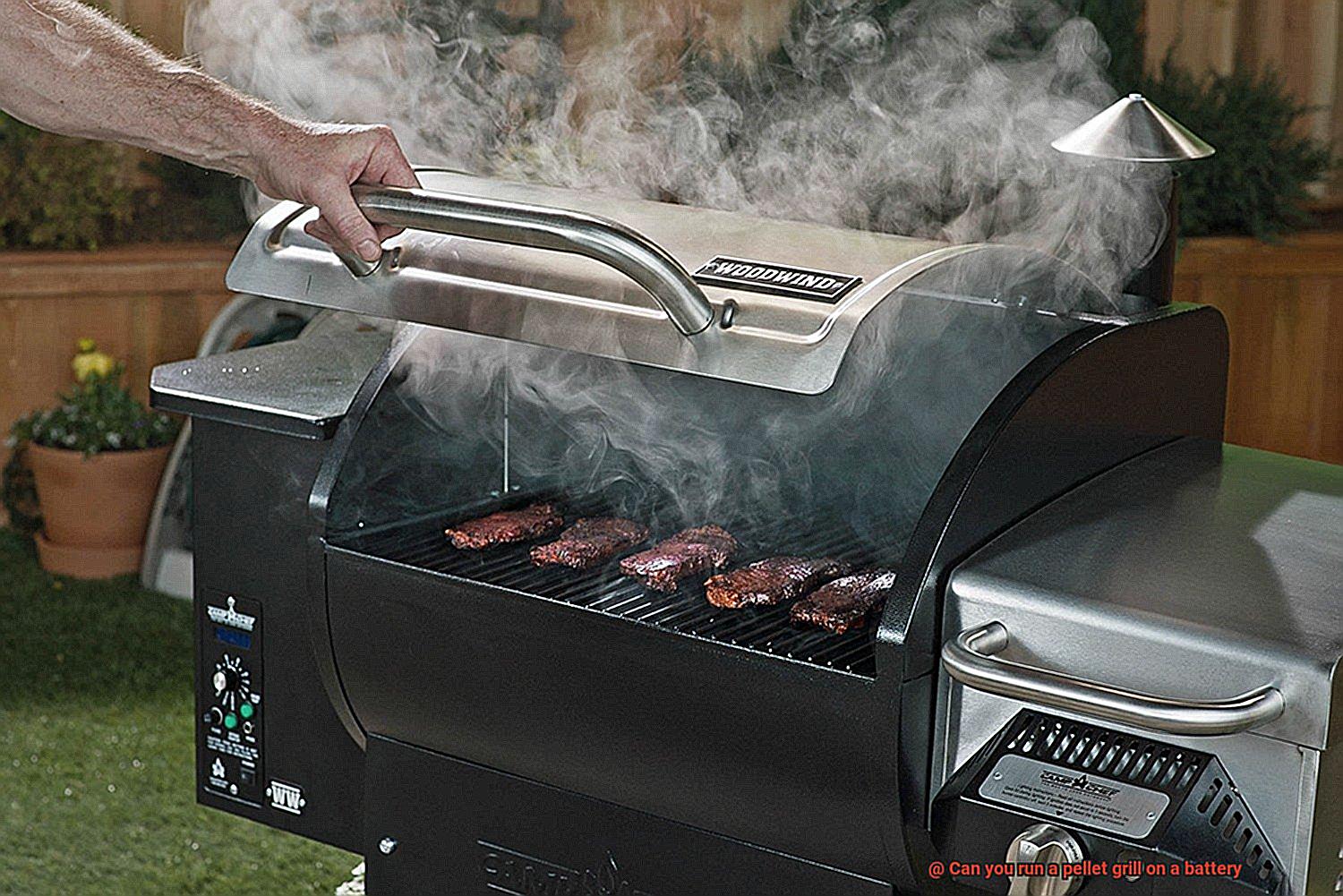
Pellet grills rely on electricity to operate. The digital controller, auger, and fan all require power to maintain the temperature and circulate air in the cooking chamber. The amount of power required varies depending on the size and features of the grill. Smaller pellet grills typically require less power, while larger ones may require more.
If you want to run your pellet grill on a battery, you’ll need an inverter that can convert DC power into AC power. Most pellet grills come with an AC adapter that can be plugged into a standard electrical outlet, so an inverter is necessary to make the switch to battery power. But before you choose a battery, there are a few things you need to consider.
The first factor to consider is the capacity of the battery. This determines how long it can provide power to your grill. You don’t want to run out of battery mid-cookout. The voltage of the battery must also match the voltage requirements of both your inverter and pellet grill. Finally, consider the type of battery. Lithium-ion batteries are a popular choice due to their high energy density and long lifespan.
It’s important to note that running your pellet grill on a battery isn’t always practical or necessary. Most pellet grills come with an AC adapter that can be plugged into a standard electrical outlet, making it easy to use at home or in RV parks with electrical hookups. However, if you’re planning to take your grill off-the-grid or experience a power outage, having a battery backup can be a lifesaver.
Safety Considerations When Using a Battery to Power a Pellet Grill
When it comes to powering your pellet grill with a battery, convenience and freedom are at your fingertips. However, it’s vital to take safety considerations into account to ensure that you’re grilling safely. Here are some tips to help you do just that:
- Compatibility: It’s crucial to ensure that the battery you’re using is compatible with your pellet grill and has the necessary voltage and capacity to power it adequately. Otherwise, you risk damaging your grill or causing an accident.
- Storage and usage: To maintain safety, store and use the battery appropriately. Keep it away from heat sources and use the correct charging equipment to avoid overcharging or undercharging the battery.
- Fire hazards: Since pellet grills generate heat, it’s essential to secure and protect the battery from this heat. Failure to do so could lead to a fire. Follow all manufacturer recommendations for installing and using the battery with your pellet grill.
- Battery type: Different types of batteries have different risks associated with them. For instance, lithium-ion batteries can overheat and catch fire if damaged or improperly charged. Be aware of these risks and take appropriate precautions when using any type of battery to power your pellet grill.
Advantages and Disadvantages of Running a Pellet Grill on Battery Power
Consider running it on battery power. As an expert in this field, I can tell you that there are advantages and disadvantages to this method that you should be aware of.
Let’s start with the advantages. One of the biggest benefits of powering your pellet grill with a battery is the portability it provides. You can take your grill with you anywhere, whether it’s to the beach, park, or any outdoor event without the need for an electrical outlet. It’s also perfect for those who love to camp or enjoy cooking in their backyard.
Another advantage is that running your pellet grill on battery power can save you money on electricity bills. Since you won’t need to plug it into an electrical outlet, you won’t have to worry about running up your energy costs. Plus, there’s no need to worry about having an extension cord long enough to reach an outlet.
However, there are also some disadvantages to consider. The biggest drawback of running a pellet grill on battery power is that the battery life is limited. Depending on the size and power of your battery, you may only be able to cook for a few hours before needing to recharge or replace it. This can be frustrating if you’re planning on cooking for an extended period of time.
Another disadvantage is that battery-powered pellet grills may not be able to reach high temperatures. This can limit the types of food you can cook and how well they are cooked. If you’re looking to cook a variety of meats or sear your steaks, a battery-powered pellet grill may not be the best option for you.
Lastly, it’s important to note that buying a battery-powered pellet grill can be more expensive than a traditional electric or gas grill. Additionally, you may need to purchase extra batteries or a portable generator if you plan on cooking for extended periods of time. These additional costs should be taken into consideration before making your purchase.
Tips for Successfully Running a Pellet Grill on Battery Power
Running a pellet grill on battery power can be a game-changer for those who want to enjoy delicious grilled food without relying on traditional power sources. However, to do it successfully, you need to keep a few things in mind. Here are five sub-sections to guide you through the process of running a pellet grill on battery power:
Choose the Right Battery
The first step to running a pellet grill on battery power is choosing the right battery. Not all batteries are created equal, and you need to find one that can handle the power requirements of your pellet grill. A deep cycle marine battery is the best option as it can provide a steady flow of power over a long period of time. Be sure to choose a battery with high enough capacity to power the grill for your desired cooking time.
Use a Voltage Inverter
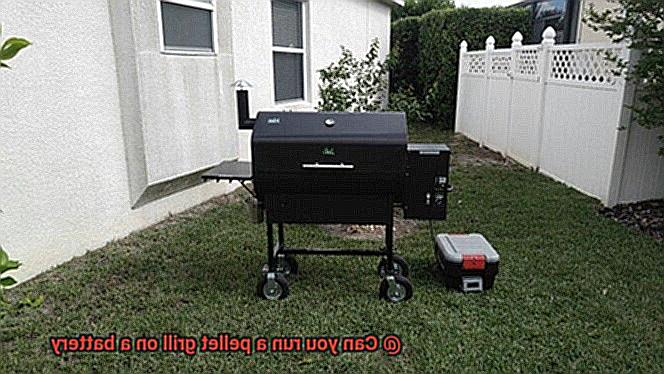
Most pellet grills require 120 volts of AC power to operate, while batteries provide DC power. To convert the DC power from the battery to AC power that the grill needs, use a voltage inverter. Be sure to choose an inverter that can handle the wattage requirements of your pellet grill. Without an inverter, it may be difficult or impossible to run the grill on battery power.
Monitor Battery Level
Running a pellet grill on battery power will drain the battery quickly, so it’s essential to monitor the battery level closely. Use a battery monitor to check the voltage regularly and make sure you have enough power for your cooking session. This will help you avoid any unexpected interruptions or disappointments during your grilling experience.
Limit Cooking Time
Battery-powered pellet grills are not designed for long cooking sessions, and their cooking time is limited by the capacity of the battery. To get the most out of your battery, limit your cooking time to a few hours at most. This will help you conserve energy and avoid running out of power in the middle of your cooking session.
Use Energy-Efficient Settings
To conserve battery power, use energy-efficient settings on your pellet grill. Set the temperature lower and use less smoke to extend your battery life. Preheating the grill before adding food can also help reduce energy consumption and improve cooking efficiency. By using energy-efficient settings, you can maximize your cooking time and enjoy delicious grilled food even when you’re off the grid.
R8n-oJpemdY” >
Conclusion
To sum up, running a pellet grill on battery power is more than feasible and an excellent option for outdoor enthusiasts who crave grilled food in remote locations. However, it’s essential to carefully consider the power requirements of your grill and choose the appropriate battery type.
For sustained and lengthy cooking sessions, a deep cycle marine battery or high-capacity lithium-ion battery will do the job. A voltage inverter can convert DC power from the battery into AC power that your pellet grill needs. Keep an eye on the battery level, use energy-efficient settings, and limit cooking time to maximize your grilling experience.
While there are some drawbacks such as limited battery life and potential difficulty reaching high temperatures, the benefits of portability and cost savings make it worth investing in a battery-powered pellet grill.
Safety is paramount when using batteries to run your pellet grill. Always ensure compatibility between batteries and grills, store them correctly away from heat sources, and be aware of fire hazards associated with different types of batteries.
In conclusion, running a pellet grill on a battery is an excellent option for those who love outdoor cooking without access to electrical outlets.

